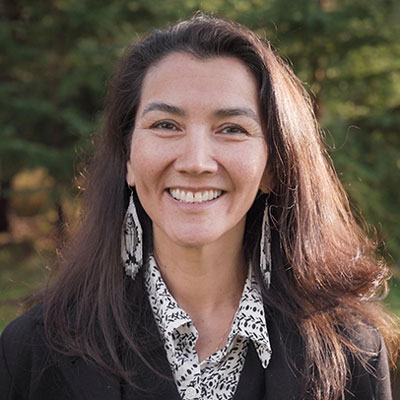Press Releases
ICYMI: Peltola Hosts Convening on Outmigration
Washington,
September 24, 2024
|
Kaitlin Hooker
Convening brings together federal, state, local leaders to talk policies that keep Alaskans living and working in the state In Case You Missed It–Earlier this month, Representative Mary Sattler Peltola (AK-AL) hosted a Convening on Outmigration–a summit to identify issues and solutions on Alaskan rural-to-urban and Lower 48 outmigration. The convening, the first of its kind, was hosted in partnership with the Alaska Federation of Natives (AFN), UAA’s Institute of Social & Economic Research (ISER), and First Alaskans Institute (FAI). Federal, state, and local leaders, as well as academic, workforce, and community stakeholders came together to discuss solutions. “This is something we brainstormed so that we could all begin a collaborative discussion on what we can do on multiple governance levels to stop and reverse this trend,” said Rep. Peltola. “Whether it's migration from our rural villages to regional hubs, urbanization into major cities, or beyond our state's borders, the reasons behind this movement are a symptom of deeper-rooted issues. We want our kids and our grandkids who want to stay here to have the opportunity and ability to!” Listen to an audio recording of Rep. Peltola’s opening remarks from the convening HERE. In conjunction with Rep. Peltola, ISER also developed a public dashboard that tracks outmigration data so Alaskans can study trends in their community and region. View the dashboard HERE. The Convening included comments from the host partners, as well as from the UAA Small Business Development Center, College Gate Elementary School, the U.S. Arctic Energy Office, Spruce Root, Inc., ANTHC, the AK Department of Labor, and others. Stakeholder reflections: “Understanding the impacts of continued outmigration in Alaska requires critical thinking from the best and brightest minds from across our state,” said U.S. Senator Murkowski. “Tackling population decline requires a comprehensive approach to address the high costs of living, housing, education, healthcare, childcare, and employment opportunities. None of these are easy, but they are essential to securing a more prosperous future for the state we love. I commend Representative Peltola for convening this panel of Alaskans, sparking thoughtful dialogue on this pressing issue.”
“My biggest takeaway from this informative conference was the data from ISER that our net outmigration is not due to an increase in people leaving Alaska, but from a decrease in people relocating to our state,” said Alaska State Rep. Andrew Gray. “This should guide our policy going forward; we need to focus on attracting more folks to the greatest state in the nation.” “Thanks to Rep Peltola for convening a statewide discussion to tackle outmigration,” said Alaska State Rep. Zack Fields. “We all need to work on this together to get Alaska growing again.” “It’s clear that Alaska has enormous potential for a vibrant future, but we need to refocus on our people as our economy is shifting to retain our youth and invite their peers,” said Alaska State Rep. Donna Mears. “I’m grateful to Rep. Peltola for her focus on this issue and for convening this gathering.” “I appreciated that the convening recognized the central role that Alaska’s ongoing housing shortage is playing in driving outmigration,” said Alaska State Senator Forrest Dunbar. “It is my hope that we can continue making changes at the state and local level, with the continued financial support of the Biden-Harris Administration, to make it easier to build, renovate, and otherwise increase housing supply.”
“There are few who better understand the economic pressures facing families across our state than Alaska’s Tribal housing practitioners,” said Griffin Hagle-Forster, Executive Director of the Association of Alaska Housing Authorities. “Elusive economies of scale, costly and complex logistics, decades of stagnant federal investment, scarce private sector interest, growing impacts from the nation’s fastest-changing climate and other factors have long challenged our efforts to address the unmet need for over 16,000 new housing units. We are grateful to the organizers of this convening for the opportunity to share innovative partnerships and policy perspectives. Through meaningful equity and engagement on housing for Native communities, we can start to build like our future depends on it—because it does.” “This event was very timely. Our villages, in particular, are suffering greatly from the loss of population,” said Kerry Ivory, Administrator of the Native Village of Ouzinkie. “Our workforce is being depleted because we don't have the money to provide the types of opportunities that are required to continue to live in remote Alaska. Housing, employment, training, quality K-12 education, and entrepreneurship are all lacking and the tribes and municipalities in our villages don't currently have the assets available to meet these needs. There were some very powerful case studies that helped inspire myself and other community leaders to be creative. Quyanaa!”
“This event brought together an incredibly diverse group of stakeholders to learn about and address various factors contributing to outmigration from Alaska,” said the Arctic Energy Office at DOE. “The variety of perspectives helped me understand the issue in a more nuanced way, frame my own work more broadly, and think about concrete next steps.” “Migration through the lens of Alaskans has a variety of perspectives and outcomes,” said Jackie Qataliña Schaeffer, Director of Climate Initiatives for the Alaska Native Tribal Health Consortium. “We must not settle for one view if we are tasked to create solutions to improve the quality of life for all Alaskans.” ### |

